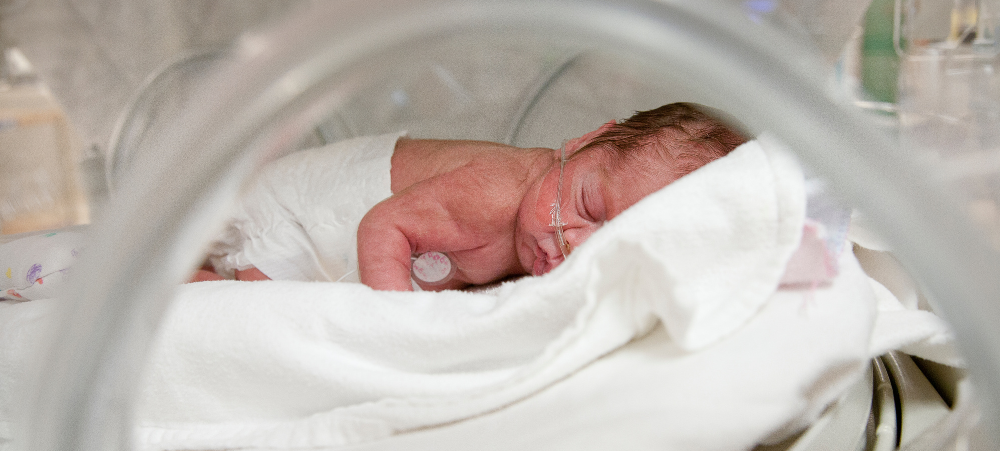All babies will benefit tremendously from breastmilk. But, for a premature baby, these benefits are so much more important. No other nourishment can compare to breastmilk and your preemie will need all the nourishment he can get.
Your breastmilk is tailor made for your baby and for this specific time. What this means is that the milk that you are producing right now is special ‘preemie milk’ formulated just for your premature baby. Preterm milk contains higher concentrations of fat, energy, protein, calcium, potassium, magnesium, sodium, chloride and iron. It is very different to the milk that a mother of a full term infant would be producing, No other milk can come close to what you are making and as your baby grows and develops, so your milk will change and develop too. Even though your baby may have come a little early, your body can and will continue to nurture and nourish him every step of the way.
Whats in it?
Immunoglobulins: Immunoglobulins are large protein molecules produced in the lymph tissue, these function as antibodies in the immune system. During the last trimester of pregnancy, immunoglobulins cross over the placenta and are stored by your baby. These are then used to protect a newborn against infections for up to 6 months following birth. Now while your prem baby may not benefit from this in utero, you can still provide him with immunoglobulins through breastmilk.
Since premature babies are more susceptible to infections and disease, this is a very important benefit.
Protein: Protein is vitally important for growth and development in your baby. Babies need protein in order to maintain, repair and make new cells. There are two types of proteins present in breastmilk – Casein (20-40%) and Whey (60-80%). The remarkable balance of these proteins is what makes breastmilk so easy to digest. This means that your baby is using less energy for digestion and is therefore able to use more energy for growth.
Fat:Fat is an absolute necessity for your baby. Fats aid in brain development, absorption of fat-soluble vitamins and this is of course your baby’s primary source of calories. Long chain fatty acids are crucial for brain, retina and development of the nervous system.
Carbohydrates:Lactose is the primary source of carbohydrate in human milk. Many make the mistake of assuming lactose is bad for the human body, when it is actually very important – especially for your preemie. Lactose helps to minimise the amount of unhealthy bacteria in the stomach which in turn improves the absorption of minerals such as calcium and magnesium.
Lactose will also promote growth of healthy bacteria in your baby’s gut.
Minerals: Sodium, potassium, calcium, magnesium, iron and zinc (to mention a few) are all present in breastmilk, the amazing thing is that breastmilk also contains facilitators for each of these minerals making absorption of minerals that much more efficient.
Calcium: Builds strong bones, promotes healthy nerve and muscle function, helps blood clot, and helps the body convert food into energy.
Iron: Important for healthy brain, cognitive and neurological development. Iron is also a key component of haemoglobin, a protein which helps red blood cells deliver oxygen from the lungs to tissues throughout the body.
Magnesium:Keeps bones strong and the heart rhythm steady, supports the immune system, and helps maintain muscle and nerve function.
Potassium: Works with sodium to control the body’s water balance, which helps maintain blood pressure. Assists with muscle function and heart rhythm and, in later years, may reduce the risk of kidney stones and osteoporosis.
Zinc:Needed by more than 70 enzymes that aid digestion and metabolism, and essential for growth.
In summary, breast milk is hugely beneficial for your preterm baby because of its unique protein structure, its ability to promote fat absorption, and its pattern of fatty acids that promote growth and development both physically and neurologically. Unlike any other milk. Some may argue that growth is slower for babies who are fed breastmilk than those who are fed artificial milk, however, this growth rate is generally extremely close to the rate that a child would continue to grow in utero.
Now, while you are focusing on giving your baby the best of the best, you may not realise that you are doing exactly the same thing for yourself. Psychologically, moms who provide breastmilk for their babies feel more connected to them, bond better with them and feel more fulfilled in their role as a mother.
You may not be unable to hold or even touch your baby for the time being, but you are still able to feed him. You are still able to provide him with the best possible nutrition, you are able to manufacture food for your child that no other human on earth can replicate. In this way, you are able to bond with your baby, in this way you are able to touch him and impact his life, in this way you are able to give him everything that he needs in this very moment. You are his mom and you are doing a fantastic job!
We understand that there are many aspects that encompass a Mother, Father or Child and strive toward providing resources and services that accommodates this.
Our content is aimed to inform and educate families on issues starting from pregnancy through to the challenges of the teen-age years.
- Say Hello to the Ultimate Holiday Brunch Bite - December 17, 2025
- Tiny Toons Looniversity Returns: Meet the Voice Behind Plucky and Hamton! - December 12, 2025
- From Pain to Possibility: Panado®’s New Marketing Campaign, Highlights The Joy Of Pain Relief - December 10, 2025





